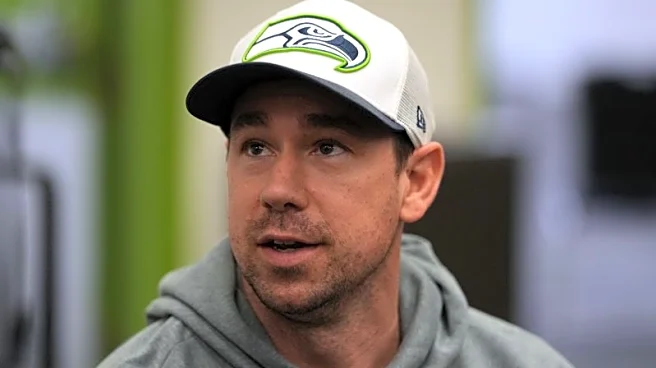Rapid Read • 8 min read
In a recent episode of the podcast 'Holistic Life Navigation,' Will Harris, a farmer and cattleman, shared insights into his journey of transforming his family farm, White Oak Pastures, from an industrial farming model to a regenerative one. Harris inherited the farm and initially followed industrial practices, which led to environmental degradation, including desertification due to chemical use and monocultural farming. Over time, he recognized the detrimental effects of these methods, which focused on eliminating pests and weeds, and decided to adopt a more sustainable approach. This transition involved eliminating the use of hormones and pharmaceuticals in cattle and embracing practices that support the ecosystem's natural balance.
AD
The shift from industrial to regenerative farming is significant as it addresses critical environmental and health concerns associated with conventional agriculture. Regenerative farming practices aim to restore soil health, increase biodiversity, and reduce chemical inputs, which can lead to more sustainable food production systems. This approach not only benefits the environment but also supports local communities by promoting healthier food options and potentially creating more resilient agricultural economies. As more farmers consider similar transitions, the broader adoption of regenerative practices could lead to substantial improvements in environmental sustainability and public health.
As regenerative farming gains traction, it is likely to influence agricultural policies and consumer preferences. Farmers like Will Harris may inspire others to adopt similar practices, potentially leading to increased demand for sustainably produced food. This could prompt policymakers to support regenerative agriculture through incentives or subsidies, further encouraging its adoption. Additionally, consumer awareness and demand for environmentally friendly products may drive market changes, influencing how food is produced and distributed.
The transition to regenerative farming also raises ethical and cultural questions about the future of agriculture. It challenges traditional views on food production and encourages a reevaluation of the relationship between humans and the environment. This shift could lead to a cultural transformation in how society values and interacts with natural resources, promoting a more holistic and sustainable approach to living.
AD
More Stories You Might Enjoy












